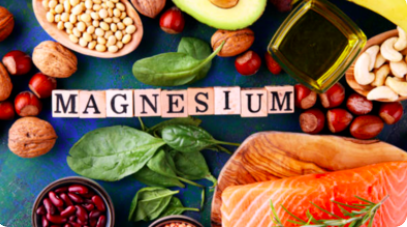Health
What is the Nutritional in Cherry?

Last Updated on October 19, 2022 by Nurse Vicky
What is the Nutritional in Cherry?
If you’ve ever wondered what is nutritional in cherry, then you’re not alone. Cherries are rich in vitamin C and have a low glycemic index. Cherry juice is an excellent snack and they’re high in fiber and potassium.
Read on to learn more about the health benefits of cherries. You might want to eat them more often. However, they’re not as healthy as you think!
Cherries are high in vitamin C

You can find a great source of vitamin C in Cherries. Cherries, whether sour, red, or raw, contain about 10 mg of vitamin C per 100 grams. Cherries also contain a significant amount of antioxidants. They are also high in fiber.
The serving size of one cup with pits contains 138 g of cherries, which corresponds to about 16% of the recommended daily allowance. The following table lists the vitamins found in different types of cherries.
They are is low in glycemic index

Cherries are a great source of antioxidants and help to boost the immune system. They also contain potassium, as one 155-gram serving has 260 milligrams.
Unfortunately, the fresh cherry season only lasts for a short time, so you may have to settle for canned tart cherries instead. They are still high in antioxidants and don’t contain a lot of sugar.
Mangoes, on the other hand, are low in calories, are high in fiber, and contain antioxidants. They also contain smaller amounts of calcium, zinc, and iron.
They are low in calories
Cherries are great for you, and you can enjoy them fresh, frozen, or in juice form. They are also available in juice or in powder form.
You can eat them on your own or add them to smoothies, oatmeal, or yogurt. Depending on their size, cherries can last up to six months in the freezer. You can also use them as a topping for yogurt, or even spread them on whole-wheat toast.
They contain melatonin

Did you know that cherries contain melatonin? The University of Texas Health Science Center recently found that tart cherries contain a significant amount of naturally occurring hormones.
Dr. Russel Reiter, who led the research team, says that melatonin is an antioxidant that helps fight the harmful effects of free radicals in the body. Melatonin also promotes sleep, so it can be an effective way to improve your quality of life.
They improve memory

According to a recent study, drinking a glass of Montmorency tart cherry juice daily can improve memory in older people.
Researchers from the University of Delaware looked at the effects of drinking fruit on cognitive function and verbal fluency in elderly participants.
The results showed that drinking fruit juice regularly led to a dramatic improvement in memory. However, consuming fruit every day alone is not a cure for dementia. Rather, it can improve cognitive performance and provide additional health benefits.
They reduce inflammation

Drinking fresh cherry juice has numerous health benefits and is known to decrease joint stiffness and pain.
A recent study showed that cherry juice can reduce inflammation and pain in people with gout, and chronic inflammatory arthritis caused by uric acid crystals in the joints. Traditional treatment for gout includes self-care and medications to reduce uric acid levels.
But in a small study involving 10 adults with gout, cherry juice was found to reduce uric acid and pro-inflammatory compounds in the blood.
Additionally, many ask
How do I get rid of the ache in my legs while I’m pregnant?
What might be of assistance:
Before going to bed, you should stretch your calves to prevent cramping…
When you feel a cramp coming on, try bending your foot and straightening your leg.
Make sure that you are getting enough fluids into your system throughout the day.
If your doctor gives you the all-clear, making sure you get enough activity on a regular basis will help reduce cramping.
What factors contribute to uncomfortable leg and foot conditions during pregnancy?
The swelling of your feet, ankles, and calves is typically the most noticeable sign of fluid retention during pregnancy. This is caused by the increased pressure that your uterus exerts on the veins that carry blood back from your lower body. This restricts the flow of blood to some degree, causing fluid to remain in the legs and feet. The blood vessels in your foot and ankle are also the smallest in your body, according to Dr.
What is the quickest way to get relief from the discomfort in my legs?
Follow these actions first if you experience pain in your legs as a result of cramping or overuse:
Get as much rest as you possibly can.
Elevate your leg.
Ice should be applied for up to 15 minutes…
Stretch and massage the muscles that are cramping gently.
Take pain relievers that are available without a prescription, such as acetaminophen or ibuprofen.
Why do my legs hurt when I get up in the morning?
A common symptom of peripheral artery disease is pain that occurs in the legs and feet at night or when an individual is attempting to sleep (PAD). Leg discomfort caused by peripheral artery disease can manifest itself in any part of your leg; however, the muscles in your calf, thigh, or buttocks are the most likely locations to be affected by the condition.
Does having leg pain indicate that labor is getting closer?
During active labor, which is the stage of labor when contractions get stronger and more regular, women may have leg cramps. In many pregnancies, swelling is normal; but, in rare instances, it may be an indication of a condition called preeclampsia, which is a pregnancy-related problem. If you see any swelling, you should make an appointment with your healthcare provider.
When should I be concerned about the pain in my legs if it occurs while I’m pregnant?
Leg pain during pregnancy is often mild and only lasts for a brief period of time. On the other hand, pain that persists for an extended period of time may be an indication of nerve compression, varicose veins, or a more serious blood clot.
When should I be concerned about a leg pain?
If you have any of the following symptoms, you should see a doctor as soon as you can:na leg that is puffy, white, or unnaturally chilly. Calf pain, especially after sitting for an extended period of time, such as when traveling by vehicle or plane for a long distance. Symptoms include swelling in both legs as well as difficulty breathing. any significant symptoms originating in the legs that appear for no obvious explanation.
Are hearts healthy for those who eat cherries?
Could be beneficial to one’s heart health Numerous studies have found a correlation between diets high in fruits and a lower incidence of coronary heart disease ( 12 ). Cherries are particularly advantageous in this area since they contain a high concentration of nutrients and compounds that are known to enhance heart health. These nutrients and compounds include potassium and polyphenol antioxidants, to name just two.
Conclusion
Tell us anything you know about ‘What is the Nutritional in Cherry?
Remember your health is wealth
Please let us know your thoughts in the comments section.
Health
7 Fascinating Facts About Magnesium You Probably Didn’t Know

7 Fascinating Facts About Magnesium You Probably Didn’t Know
Magnesium is one of the most essential minerals for our health, yet many people are unaware of its significance.
This vital nutrient plays a crucial role in numerous bodily functions, from energy production to maintaining a healthy heart.
In this article, we will delve into seven intriguing facts about magnesium that may surprise you and help you appreciate its importance in your daily life.
What is Magnesium?
Magnesium is a naturally occurring mineral found in various foods and is vital for human health.
It is the fourth most abundant mineral in the body and is involved in over 300 biochemical reactions.
Magnesium contributes to nerve function, muscle contraction, blood sugar control, and blood pressure regulation.
It can be obtained from various dietary sources, including leafy greens, nuts, seeds, whole grains, and legumes.
1. Magnesium is Involved in Energy Production
Did you know that magnesium is essential for converting food into energy? This mineral plays a critical role in the activation of ATP (adenosine triphosphate), the energy currency of our cells.
Without sufficient magnesium, your body struggles to produce energy effectively, which can lead to feelings of fatigue and weakness.
How Does It Work?
ATP production occurs in the mitochondria, often referred to as the powerhouse of the cell.
Magnesium helps activate enzymes involved in this energy production process, ensuring that your body has enough energy to perform daily activities.
2. A Key Player in Bone Health
Magnesium is vital for maintaining strong and healthy bones. Approximately 60% of the magnesium in your body is stored in your bones.
It contributes to bone density and strength by regulating calcium levels in the body, which is crucial for bone formation.
The Calcium Connection
Calcium is often touted as the primary mineral for bone health, but magnesium plays an equally important role.
An imbalance of these two minerals can lead to bone-related issues such as osteoporosis.
Ensuring adequate magnesium intake is essential for maintaining optimal bone health.
3. Supports Heart Health
Magnesium is a crucial mineral for cardiovascular health. It helps maintain normal heart rhythms and can reduce the risk of heart disease.
Adequate magnesium levels are associated with lower blood pressure and reduced risk of heart attacks.
Regulation of Blood Pressure
Magnesium helps relax blood vessels, which can lead to lower blood pressure.
Studies have shown that individuals with higher magnesium intake tend to have better cardiovascular health. Including magnesium-rich foods in your diet can be an effective strategy for supporting heart health.
4. Magnesium and Mental Health
Emerging research suggests a strong link between magnesium levels and mental health.
Magnesium plays a role in regulating neurotransmitters, which are essential for mood stabilization.
Low magnesium levels have been associated with an increased risk of depression and anxiety.
Cognitive Function
Magnesium may also enhance cognitive function. Studies have indicated that adequate magnesium intake can improve memory and learning abilities.
This mineral is essential for brain health, making it vital for overall mental well-being.
5. Magnesium Deficiency is Common
Despite its importance, magnesium deficiency is surprisingly common.
Factors such as poor diet, chronic stress, and certain medical conditions can lead to low magnesium levels.
Symptoms of magnesium deficiency can include muscle cramps, fatigue, and irritability.
Risk Factors for Deficiency
Certain populations are at a higher risk for magnesium deficiency, including the elderly, those with gastrointestinal diseases, and individuals who consume a diet low in whole foods.
It’s essential to recognize the signs of deficiency and consider increasing your magnesium intake through diet or supplements if necessary.
6. Natural Relaxant
Magnesium is often referred to as a natural relaxant due to its calming effects on the nervous system.
It helps regulate cortisol levels (the stress hormone) and promotes relaxation, making it beneficial for those dealing with anxiety and stress.
Improving Sleep Quality
In addition to its relaxing properties, magnesium can improve sleep quality.
Many people find that magnesium supplements help them fall asleep faster and stay asleep longer, making it a popular choice for those struggling with insomnia.
7. Magnesium in Sports Performance
Athletes and active individuals often benefit from magnesium’s role in muscle function and recovery.
Magnesium helps prevent muscle cramps and can aid in post-exercise recovery by reducing inflammation and promoting relaxation.
Enhancing Athletic Performance
Research has shown that adequate magnesium levels can enhance athletic performance.
It is involved in muscle contraction and relaxation, making it essential for peak performance during exercise.
Conclusion
Magnesium is a powerhouse mineral that plays an essential role in various bodily functions. From supporting energy production to promoting heart health and mental well-being, its importance cannot be overstated.
Ensuring adequate magnesium intake through a balanced diet rich in whole foods can significantly enhance your overall health and quality of life.
If you suspect you may be deficient in magnesium, consider consulting with a healthcare provider to assess your levels and discuss dietary changes or supplements that may be beneficial.
FAQs about Magnesium
1. What are the best dietary sources of magnesium?
The best sources of magnesium include leafy green vegetables (like spinach), nuts (especially almonds and cashews), seeds (such as pumpkin seeds), whole grains (like brown rice and quinoa), and legumes (like beans and lentils).
2. How much magnesium do I need daily?
The recommended daily intake of magnesium varies by age and gender. Generally, adult men should aim for about 400-420 mg per day, while adult women should aim for about 310-320 mg.
3. Can I take magnesium supplements?
Yes, magnesium supplements are available and can be beneficial, especially for individuals who may not get enough from their diet. However, it’s essential to consult with a healthcare provider before starting any supplement regimen.
4. What are the symptoms of magnesium deficiency?
Symptoms of magnesium deficiency can include muscle cramps, fatigue, weakness, irritability, and irregular heart rhythms. If you experience these symptoms, consult a healthcare professional.
5. Is it possible to get too much magnesium?
Yes, while magnesium from food sources is generally safe, excessive supplementation can lead to toxicity, causing symptoms like diarrhea, nausea, and abdominal cramping. Always consult a healthcare provider before increasing your magnesium intake significantly.
References:
Health
Whooping Cough: Understanding Its Resurgence and Prevention

Health
The Power of Beans: Why This Superfood is a Nutritional Treasure
-

 Trending Stories1 year ago
Trending Stories1 year agoCDC: 1 in 4 Americans Still COVID-Free by End of 2022
-

 Health5 years ago
Health5 years agoMeghan Trainor Shares Motivational New Song ‘Blink’
-

 Health6 months ago
Health6 months agoHow Do Pawpaw Seeds Support Cardiovascular Health?
-

 Health2 years ago
Health2 years agoHow Long Does Monkey Pox Last Before It Surfaces in the Body?
-

 Health3 years ago
Health3 years agoWhat Causes Swollen Body? Understanding Edema and its Triggers
-

 Health3 years ago
Health3 years agoNutrition and the Importance of a Fitness Program – 3 Things to Know
-

 Health3 years ago
Health3 years ago5 Weird Reasons Why Pimples Disappear After Marriage
-

 Health2 years ago
Health2 years agoHealth Benefits Of Pawpaw Seed? 7 Things To Know







